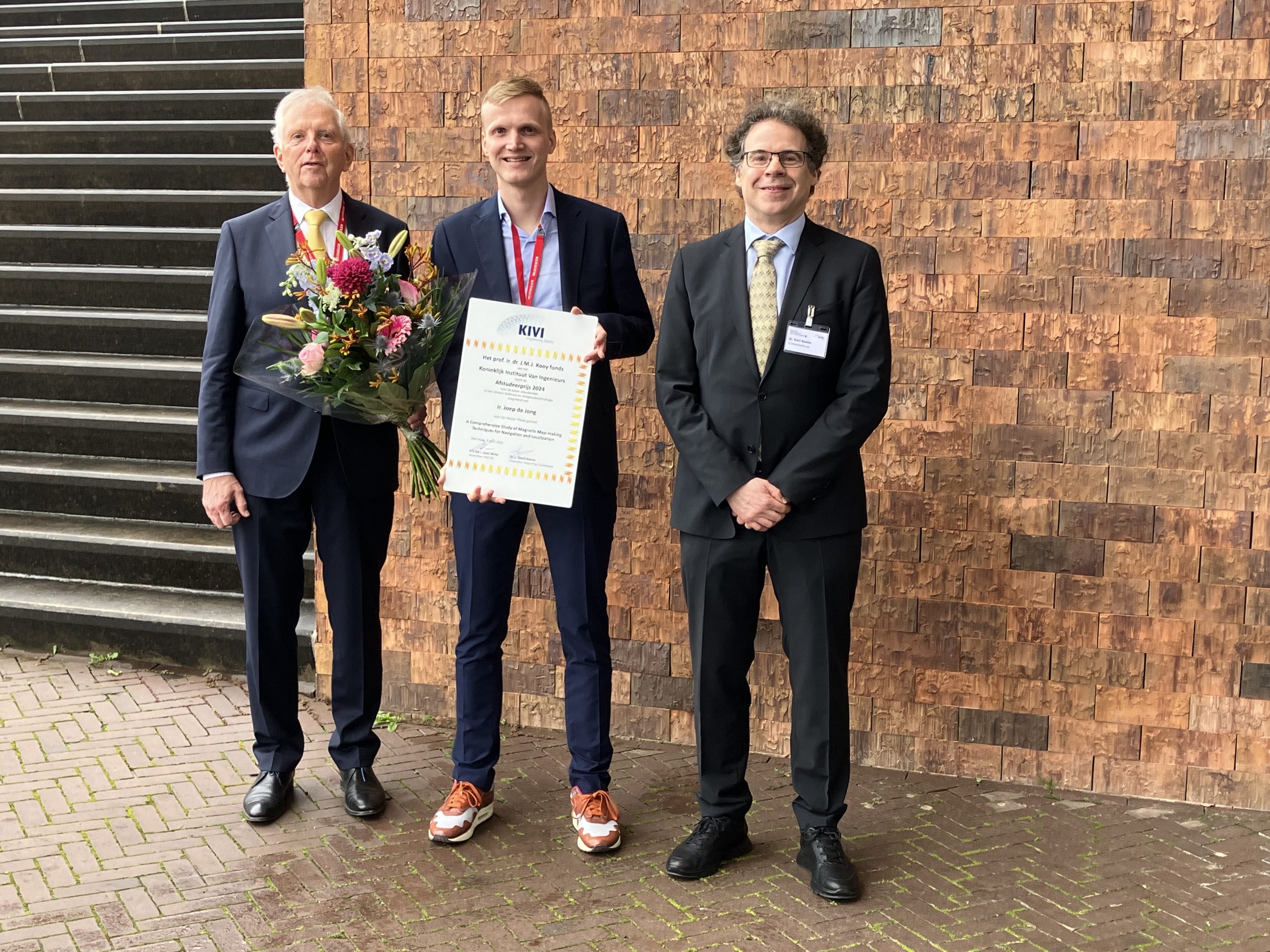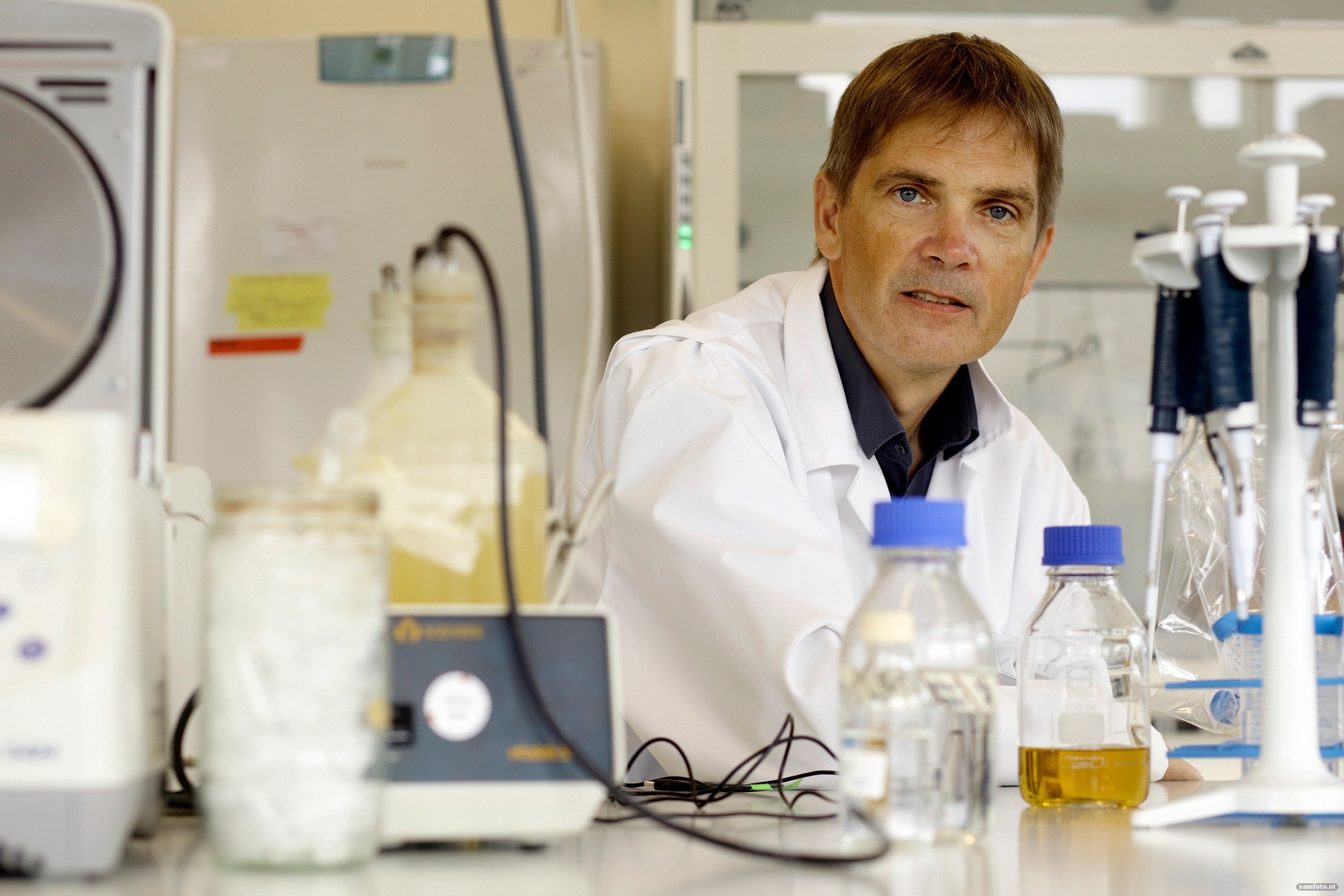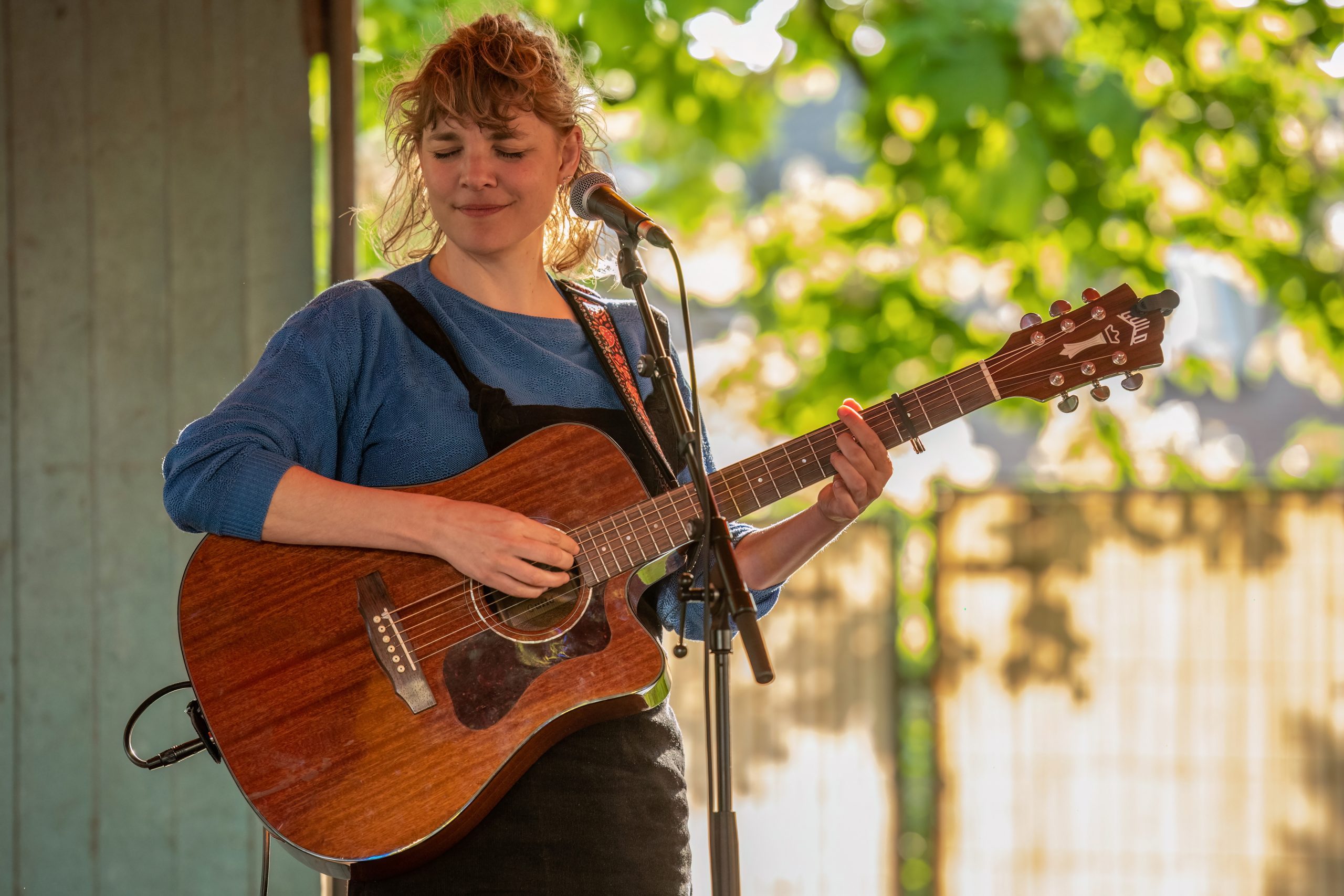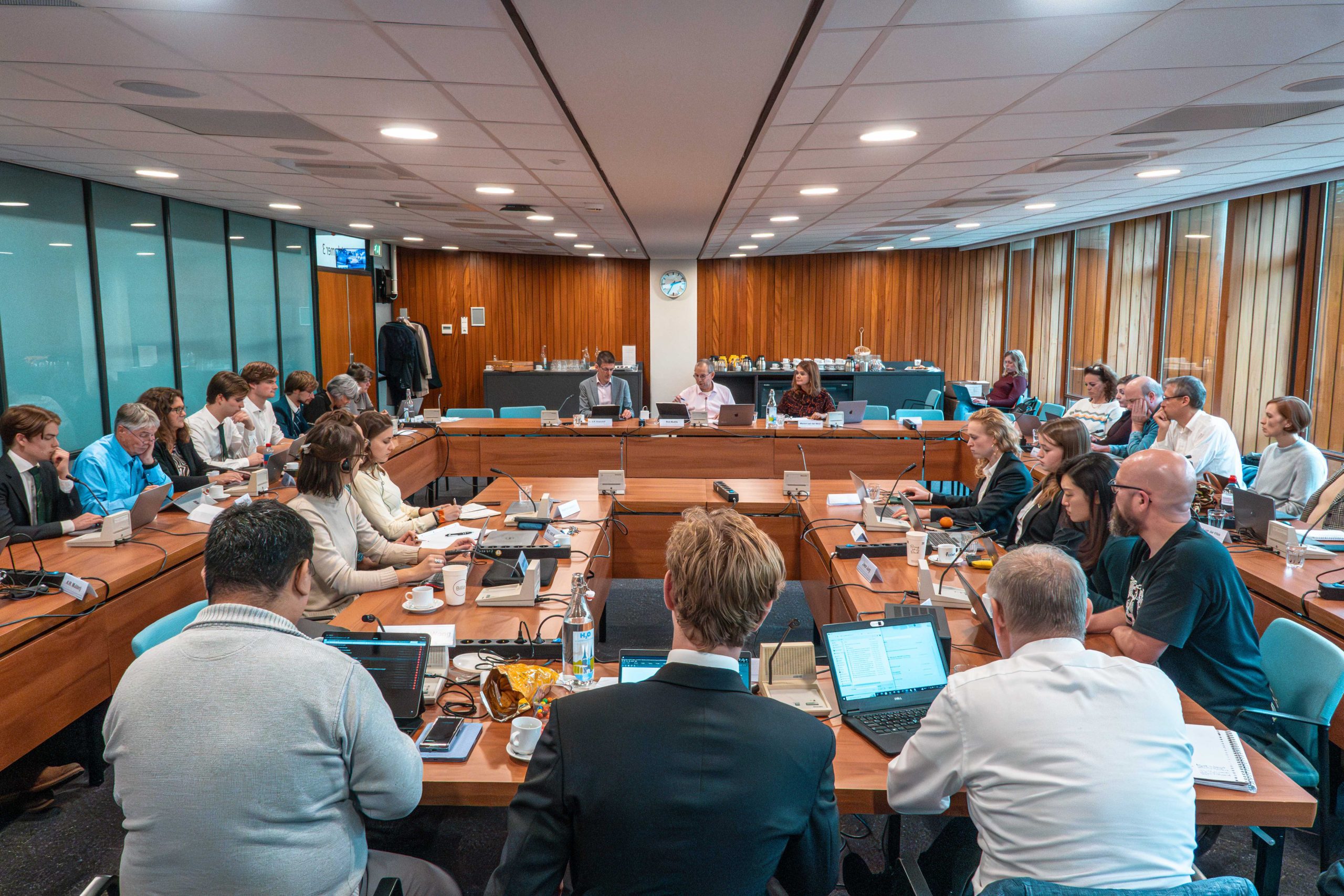Short news
The Kring van Hoofdredacteuren (literally the circle of editors in chief) – or Kring for short – rebukes the legal threats expressed by TU Delft to Delta. In a letter [link in Dutch] to the Executive Board, the Kring also asks Saskia Bonger, the Editor in Chief, to not be held liable for any personal financial claims.
‘We are extremely concerned that the Editorial Office of TU Delft’s Delta was compelled to take an article offline after being threatened with legal action by TU Delft. This goes completely against Delta’s independent journalism’, writes the Kring van Hoofdredacteuren, the national umbrella organisation for independent university and university of applied sciences media.
The reason for the letter was threats by TU Delft’s Legal Services to Delta. Legal Services ordered Delta to remove the How confidentiality led to anxiety among I&IC staff and a loss of confidence in the Executive Board article on the grounds that it had cited confidential information. Should Delta ignore the order, TU Delft would make Delta and Saskia Bonger, the Editor in Chief, personally liable for any damages incurred by TU Delft. Under protest, Delta removed the article.
The Kring views this threat as excessive, as it states in its letter. ‘Critical reporting is naturally not always pleasant for management, but it is essential for the proper functioning of, and transparency and social safety at universities. We consider it completely unacceptable that TU Delft threatened Delta’s Editor in Chief and Editorial Office with making them financially liable for any damages that the article may bring to TU Delft.’
While the Executive Board has in the meantime offered its apologies for the legal threats, in an email to the Editor in Chief Saskia Bonger, Rector Magnificus Tim van der Hagen states that he is still of the opinion that TU Delft employees, and thus Delta journalists as well, may not cite confidential information.
In the letter, the Kring requests the Executive Board to adopt the opposite stance and to guarantee the journalistic independence of Delta. ‘This then means that the article that was taken offline is put online again. And finally, we also ask that the Editor in Chief is guaranteed to not be made liable for any personal financial claims. This is so that the Delta Editorial Office can continue to report honestly on this important subject in a socially safe environment.’ Thus the Kring ends its letter.
TU Delft wants to expand to Rotterdam to enable further student growth but students are not sufficiently aware of these plans. This is shown in a survey by student council party Oras among over 1,600 bachelor, master and switch students.
At the end of 2022, TU Delft announced plans to open a branch in Rotterdam. The number of students could then grow from 28 thousand to 40 thousand. A programme team has been working since summer 2023 to develop this further. Oras asked students for their opinions on the growth plans.
Survey
Over 1,600 students took part in a survey by Oras on communication and support at the end of November. The results showed, among other things, that 59 percent of students are not aware of expansion to Rotterdam.
“We understand that the plans and especially the details are still in their early stages, but it is important to keep students well informed,” explained Oras faction member Tessa Hartog.
Especially the way information is shared deserves attention. “That often goes via official channels (e-mail and TU Student News), but you reach far more students through social media, Brightspace and netpresenters (the screens in faculties and education buildings).”
Support
In addition, there would be insufficient support among students to study in Rotterdam. Respondents give their interest a 4.7 on a scale of 10.
To increase support among students, Oras calls on the programme team to look beyond research and education alone. Hartog: “Just by (relocating) studies you don’t create a good place to study. Delft has a unique student culture, also talk to the many study and student (sports) associations involved.”
- The results of the survey were presented during the monthly meeting between the student council and the Executive Board and have been discussed with Han Derkx, programme director of Campus Rotterdam.
On other days, the director of the international atomic energy agency IAEA is mostly busy managing the crisis surrounding the occupied Ukrainian nuclear power plant in Zaporizja. But on Wednesday afternoon, 24 April, Rafael Grossi will visit the TU Delft.
The purpose of his visit is twofold: to reduce the female shortage in the nuclear industry and to encourage students to consider a career in the nuclear industry. Grossi is coming to TU Delft because it is the only Dutch educational institution with its own research reactor. Applications are in healthcare, materials science and energy supply.
Grossi will start at 15:15 with a lecture on nuclear safety, politics, international developments and gender issues. Afterwards, there will be ample opportunity to ask questions, especially for students interested in a career in the nuclear sector. Several nuclear organisations will be present in the periphery of the lecture. The event will last until 17:00 and will take place in the Aula.
- Register for the meeting through this link
The so-called Students and Staff for Safety – an anonymous group of people from TU Delft – have opened a poll following their petition. They are also launching a ‘call for action’.
In a post on Change.org, they ask people whether they think the current Executive Board is capable of bringing about the cultural change needed to improve social safety at TU Delft. They are referring to the column #NotMyExecutiveBoard by Bob van Vliet and the letter to the editor by mathematics professor Jan van Neerven with the same hashtag, both in Delta.
The Students and Staff for Safety are asking people to enter that hashtag in the online tool Mentimeter during the sessions on social safety, which the TU is organising starting 10 April.
The petition launched by the Students and Staff for Safety on 5 March was signed more than 1,100 times. This partly led to the Executive Board abandoning its intention to take the Education Inspectorate to court.

Engineer (ir.) Joep de Jong was surprised to receive a cash prize of EUR 2,000 at the Kooy Symposium (3 April 2024) of the KIVI department for defence and security. (KIVI is the Dutch Royal Institute of engineers). Little did he know that his supervisors from TU Delft and TNO had submitted his thesis to the jury and that it won him the Kooy Prize for defence-oriented research. “It feels like recognition for the work I did,” De Jong explained. His graduation work, most of which took place at TNO, was rated 9.
De Jong graduated last June from the Faculty of Electrical Engineering, Mathematics and Computer Science (EEMCS) on creating magnetic maps for navigation and positioning. These maps recognise that the Earth’s magnetic field is not homogeneous and contains numerous local anomalies. The magnetic navigation system serves as an alternative to satellite navigation, such as GPS, when the satellite signal is unavailable or disrupted.
The jury appreciated the breadth of the thesis work that includes a literature review, a numerical model of local magnetic anomalies, and a measurement campaign to validate his ideas.
TNO is continuing the line of magnetic navigation research and De Jong would also like to continue his exploration in the form of a PhD. His graduating professor was Prof. Martin Verlaan (EEMCS).
Interest trick
You might know Joep de Jong from the ‘interest rate trick’. De Jong and other students figured out in late 2022 that they could ‘split’ their study debt. If they stopped their student loans on 1 January, the interest on their current student debt would remain at 0.46% for five years. They could then restart their tuition fees on 1 February. Some 26,000 students followed his advice. “I am happy that I was able to help so many students,” De Jong responded modestly in Delta at the time.
Musicians Fridolijn, Ruud Houweling and Sophie Janna will perform Thursday evening, April 11, as part of Quite Quiet. This concert series has existed for more than 10 years and is co-organized by TU Delft-alumni.
Quite Quiet seems to be a cure for the Dutch disease [talking during concerts, ed]: the audience is invited to listen quietly and with full attention during the performances. ‘This allows you to really enjoy the music and musicians have the space to give their all,’ a press release reads.
Ruud Houweling is a singer-songwriter who, among other things, created music for the Dutch historical documentary series De Strijd om het Binnenhof. The music of singer-songwriter Fridolijn consists of ‘soft layers of swirling synthesizers, acoustic folk guitars, ambient electronics and distant drums,’ according to her website. Folk musician Sophie Janna was influenced by traditional Scottish folk and is known for her warm, sensitive songs.
- Tickets cost EUR 7.50 for students and city pass holders. The regular rate is EUR 14.50. Location: HAL015, Schieweg 15B, Delft.
The Works Council and the Student Council will have at least one extra meeting with the Executive Board about the social safety action plan. The making of such a plan is one of the demands from the Inspectorate of Education’s report on the lack of social safety at TU Delft.
The extra meeting will be on Wednesday morning 10 April. Policy advisor for social integrity Rivka van der Schoor-van Mastrigt will also be there then. She is a member of the project team overseeing the creation of the plan.
Agenda conflict
The action plan will also be discussed at the following regular consultation meeting on April 25. It is not yet known whether there will be an additional extra consultation meeting after that. The final version of the action plan must be ready by Wednesday 15 May.
The extra consultation meeting on Wednesday 10 April will take place between 10 AM and 10:45 AM. It coincides with the first of four meetings on social safety in the Auditorium of the Aula. There, staff, students and alumni can give ideas on how to improve social safety.
Road Map
In addition, there will be six smaller meetings that can only be attended by invitation , according to a Road Map posted on the intranet. There will also be a large meeting with a group of 100 randomly selected students and staff and a digital suggestion box has been opened.
According to the schedule, the draft version of the action plan will be discussed with TU Delft’s Integrity Office during the week of 15 April. By the week of 11 April, 90 percent of the action plan should be fixed and discussions with the Supervisory Board, the Executive Board, a sounding board group and the ‘board of directors’ will follow.
XIOR Student Housing has already been reprimanded hundreds of times by the rent commission for excessive service charges. Students also often pay too much at other large housing providers, NOSop3 observes.
A landlord should not make a profit on the cost of cleaning, garden maintenance or a caretaker. Yet this does happen, reports NOSop3.
The broadcaster searched through all 5,595 rulings by the rent assessment committee on service costs from the past five years. In these, tenants were proven right 3,812 times (68 per cent). Some companies were told by the rent assessment committee dozens of times that they were charging too high service charges.
‘Mistake’
XIOR Student Housing even lost more than four hundred cases. To NOSop3, the company says this was due to a “mistake”. The company has to substantiate the actual service costs in each case with invoices, but the rent assessment committee is said to be not always quick enough to do that. XIOR rents out thousands of student rooms in 15 Dutch cities.
In the lost cases, landlords were overcharging service costs by an average of 743 euros a year, NOSop3 calculated based on the rulings.
HOP, Olmo Linthorst
The members of the project team that will guide the drafting of a Social Safety Action Plan were announced in a message on the intranet on Thursday.
The project team consists of nine members, including rector magnificus Tim van der Hagen, director of HR Annemieke Zonneveld, director of communication Carola de Vree and deans Henri Werij (AE) and Aukje Hassoldt (TPM).
The members will spend the coming period providing guidance on drafting a social safety action plan. This action plan is one of the demands of the Inspectorate of Education’s report on the lack of social safety at TU Delft.
One of the first actions of the project team is organising four meetings where employees, students and alumni can give ideas for ‘a socially safer working and studying environment’. These meetings will be supported by Bureau Berenschot, an external consultancy firm, which will also guide TU in writing the action plan.
Project team Social Safety
- Tim van der Hagen – president of the Executive Board of TU Delft
- Annemieke Zonneveld – director Human Resources
- Carola de Vree – director Communication
- Aukje Hassoldt – dean Technology, Policy and Management
- Henri Werij – dean Aerospace Engineering
- Remco Vroegop – administrative coordination (University Corporate Office)
- Rivka van der Schoor-van Mastrigt – employee Integrity Office
- Sacha Kroonenberg – director Education & Student Affairs
- Rutger Blijleven – student member


Dr Jack Pronk, Professor of Industrial Biotechnology (Faculty of Applied Sciences), will receive this year’s Novozymes Prize from the Danish Novo Nordisk Foundation, worth DKK 5,000,000 (EUR 627,000).
Pronk is being awarded the Prize for his fundamental scientific work with yeast cells and their use in the industrial production of biofuels from waste streams. Pronk’s work thus prevents competition between biofuel and food production.
Yeast naturally copes well with short sugars and converts them into alcohol, a form of biofuel. Agricultural residues, such as leaves and stems, do not contain accessible simple sugars, but longer pentose sugars instead. The discovery of a fungus in elephant dung that could crack pentose sugars opened the door for a genetically modified yeast that can convert residual streams into alcohol.
Jury Chair Detlef Weigel says of Pronk: “The advances he has made, especially with using yeast, are based on an exceptionally deep knowledge of physiology and metabolism, rooted in rigorous fundamental research. He clearly is a world leader in industrial biotechnology and fermentation science, with a specific focus on developing sustainable bioprocesses that help reduce waste streams and carbon footprints.”
The Novozymes Prize is awarded every year by the Novo Nordisk Foundation, a business organisation that supports scientific, humanitarian and social causes. The projects selected are intended to benefit human life, society or the planet. They are selected from the fields of healthcare, sustainability and biotechnology.
Two years ago, Pronk’s colleague, Professor Mark van Loosdrecht (AS Faculty) also received the Novozymes Prize. And in 2017, it was bestowed on Emmanuelle Charpentier. She co-invented Crispr-Cas, the precision genetic modification instrument. Three years later, in 2020, she and Jennifer Doudna were awarded the Nobel Prize in Chemistry for it.
This year’s Novozymes Prize presentation will take place on 19 April in Bagsværd, at the north-western edge of Copenhagen.
- Read also: Jack Pronk receives the 2024 Novozymes Prize on the TU Delft website









